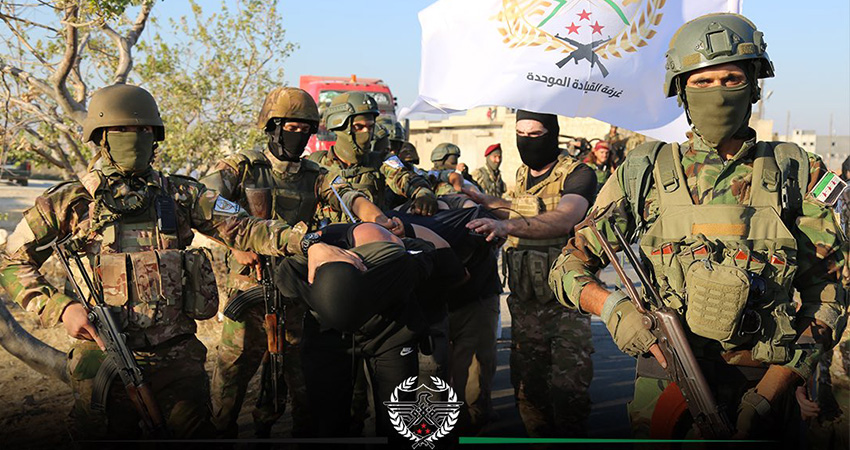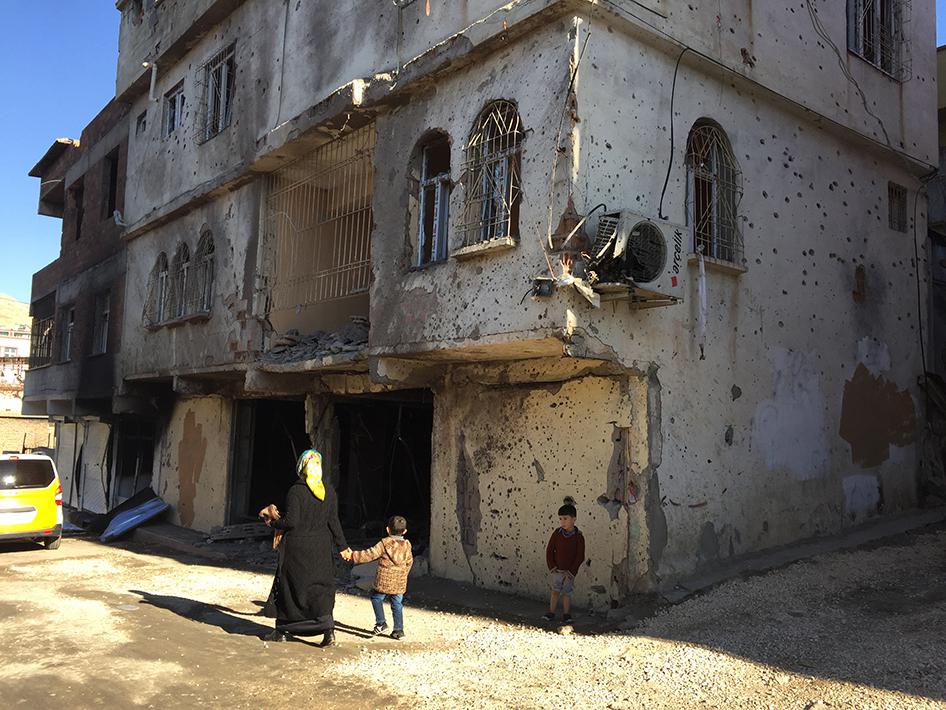RIC’s newest periodic report, appearing once every quarter, tracks human rights violations and crimes by Turkey and Turkish-backed SNA groups in the occupied regions of Afrin and the ‘M4 Strip’ – the border region between the occupied cities of Sere Kaniye and Tel Abyad. The RIC team:
(Beirut) – Turkey-backed armed groups in the Free Syrian Army (FSA) have seized, looted, and destroyed property of Kurdish civilians in the Afrin district of northern Syria, Human Rights Watch said today. The anti-government armed groups have installed fighters and their families in residents’ homes and destroyed and looted civilian properties without compensating the owners.
This report documents the arrests of 21 persons, one of whom died under torture, in Ras al-Ayn/Serê Kaniyê and Tal Abyad, as well as the arrest of 31 people, including women and children, in Afrin
Canada: Immigration and Refugee Board of Canada, Turkey: The Alevi faith, principles, beliefs, rituals and practices (1995-2005), 7 April 2005, TUR43515.E, available at: https://www.refworld.org/docid/42df61b320.html [accessed 2 October 2021]
Turkey’s political history is littered with alarmingly numerous murders, ‘disappearances’ and unexplained deaths of investigative journalists, academics, officials, businessmen, and human rights and other activists of various kinds. A notable recent example was the murder of the Armenian journalist Hrant Dink in January 2007. Death threats to prominent public figures such as the writer Orhan Pamuk, suspiciously-staged terrorist incidents, and unsolved violent attacks on the Alevi and other minorities can be added to this litany.1 Incidents such as these have convinced many Turks of the existence of a so-called ‘deep state’, assumed to be composed of an ultra-nationalistic, arch-Kemalist and authoritarian network of bureaucrats, lawyers, soldiers, policemen, criminals and the like. They are often drawn from, but acting in parallel to the state, immune to prosecution, acting against those judged to be in opposition to the official secularist, nationalist and authoritarian ideology of the Turkish Republic. The activities of the ‘deep state’ are often believed to spill over into criminal activity of various kinds.
Recent years have seen an explosion of protest movements around the world,
and academic theories are racing to catch up with them. This series aims to
further our understanding of the origins, dealings, decisions, and outcomes
of social movements by fostering dialogue among many traditions of thought,
across European nations and across continents. All theoretical perspectives are
welcome. Books in the series typically combine theory with empirical research,
dealing with various types of mobilization, from neighborhood groups to
revolutions. We especially welcome work that synthesizes or compares different
approaches to social movements, such as cultural and structural traditions,
micro- and macro-social, economic and ideal, or qualitative and quantitative.
Books in the series will be published in English. One goal is to encourage nonnative speakers to introduce their work to Anglophone audiences. Another is to
maximize accessibility: all books will be available in open access within a year
after printed publication.
Human Rights Watch conducts regular, systematic investigations of human rights abuses in some seventy countries around the world. It addresses the human rights practices of governments of all political stripes, of all geopolitical alignments, and of all ethnic and religious persuasions. In internal wars it documents violations by both governments and rebel groups. Human Rights Watch defends freedom of thought and expression, due process and equal protection of the law; it documents and denounces murders, disappearances, torture, arbitrary imprisonment, exile, censorship and other abuses of internationally recognized human rights.
Human Rights Watch began in 1978 with the founding of its Helsinki division. Today, it includes five divisions covering Africa, the Americas, Asia, the Middle East, as well as the signatories of the Helsinki accords. It also includes five collaborative projects on arms transfers, children’s rights, free expression, prison conditions, and women’s rights. It maintains offices in New York, Washington, Los Angeles, London, Brussels, Moscow, Dushanbe, Rio de Janeiro, and Hong Kong. Human Rights Watch is an independent, nongovernmental organization, supported by contributions from private individuals and foundations worldwide. It accepts no government funds, directly or indirectly.
The staff includes Kenneth Roth, executive director; Cynthia Brown, program director; Holly J. Burkhalter, advocacy director; Robert Kimzey, publications director; Jeri Laber, special advisor; Gara LaMarche, associate director; Lotte Leicht, Brussels office director; Juan Méndez, general counsel; Susan Osnos, communications director; Jemera Rone, counsel; Joanna Weschler, United Nations representative; and Derrick Wong, finance and administration director.
The regional directors of Human Rights Watch are Peter Takirambudde, Africa; José Miguel Vivanco, Americas; Sidney Jones, Asia; Holly Cartner, Helsinki; and Christopher E. George, Middle East. The project directors are Joost R. Hiltermann, Arms Project; Lois Whitman, Children’s Rights Project; Gara LaMarche, Free Expression Project; and Dorothy Q. Thomas, Women’s Rights Project.
The members of the board of directors are Robert L. Bernstein, chair; Adrian W. DeWind, vice chair; Roland Algrant, Lisa Anderson, Peter D. Bell, Alice L. Brown, William Carmichael, Dorothy Cullman, Irene Diamond, Edith Everett, Jonathan Fanton, Jack Greenberg, Alice H. Henkin, Harold Hongju Koh, Jeh Johnson, Stephen L. Kass, Marina Pinto Kaufman, Alexander MacGregor, Josh Mailman, Andrew Nathan, Jane Olson, Peter Osnos, Kathleen Peratis, Bruce Rabb, Orville Schell, Sid Sheinberg, Gary G. Sick, Malcolm Smith, Nahid Toubia, Maureen White, and Rosalind C. Whitehead.
Kurdish civilians, including women, children and elderly residents, have been killed during security operations and armed clashes since July 2015 in southeastern Turkey. Local human rights groups have recorded well over 100 civilian deaths and multiple injuries. After unprecedented military deployments to the region in recent days, several cities are under curfew and some of their neighborhoods the scenes of shelling by the military and heavy clashes with armed Kurdish groups. The civilian death toll is likely to rise steeply in the coming days.
In 2018 Turkish armed forces invaded and took control of the northern Syrian region of Afrin, which was largely populated by Kurds, Yazidis, Christians, and other minority groups. The Turks and their allied militias drove hundreds of thousands of people out of Afrin, many of whom sought refuge in northeastern Syria, governed by the Autonomous Administration of North and East Syria (AANE). At the end of 2019, Turkey also invaded northeastern Syria after President Trump ordered most US forces out of Syria.





